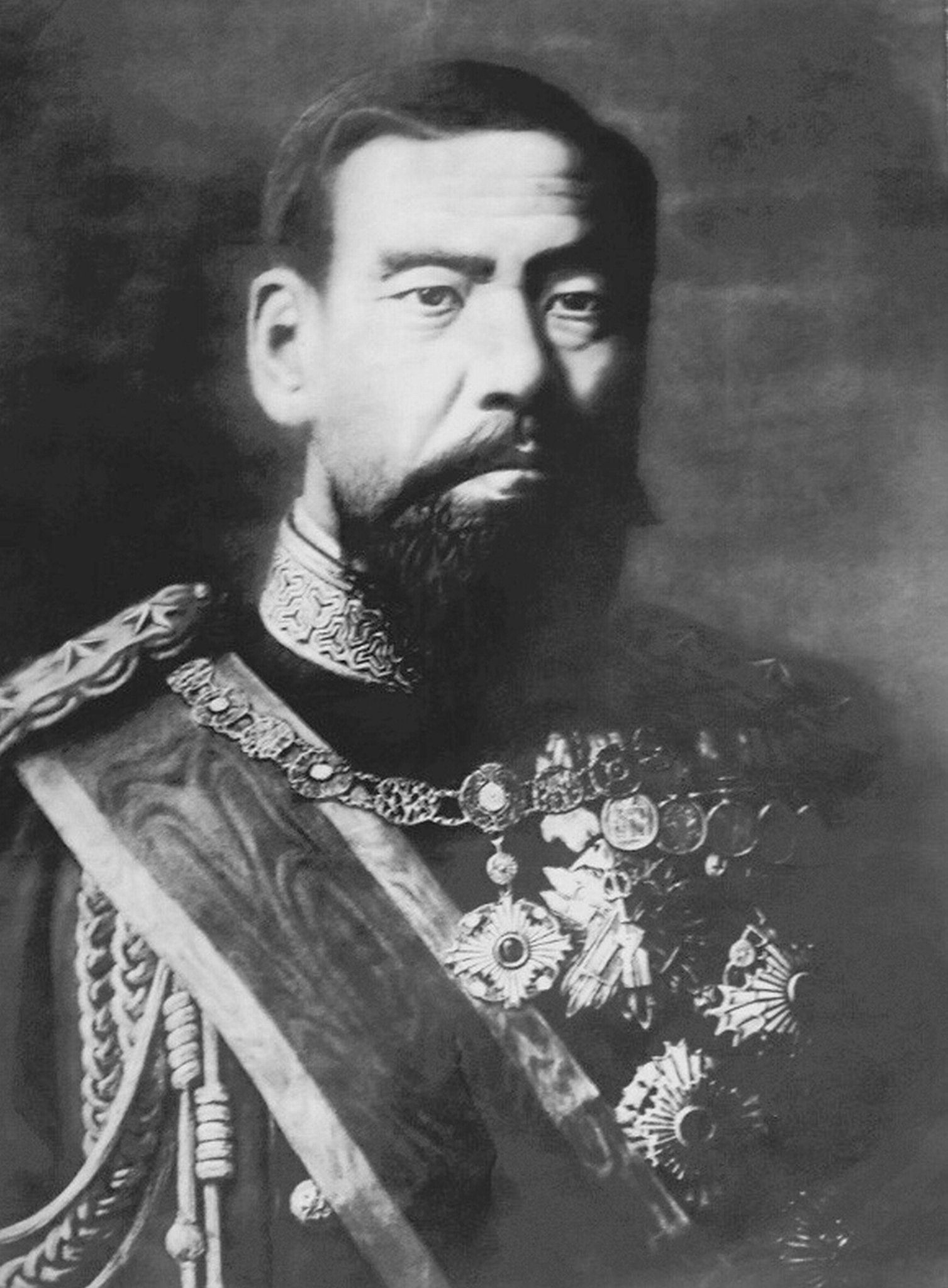Emperor Meiji (November 3, 1852 – July 30, 1912), or Meiji the Great, was the 122nd Emperor of Japan according to the traditional order of succession, reigning from February 3, 1867 until his death on July 30, 1912. He presided over a time of rapid change in the Empire of Japan, as the nation quickly changed from a feudal state to a capitalist and imperial world power, characterized by Japan's industrial revolution.
At the time of his birth in 1852, Japan was an isolated, pre-industrial, feudal country dominated by the Tokugawa Shogunate and the daimyo, who ruled over the countries more than 250 decentralized domains. By the time of his death in 1912, Japan had undergone a political, social, and industrial revolution at home and emerged as one of the great powers on the world stage.
In Japan, the reigning emperor is always referred to as "The Emperor"; since the modern era, a deceased emperor is referred to by his particular reigning name. The correct usage is thus "the Meiji Emperor". His personal name, which is not used in any formal or official context, was Mutsuhito.
The Meiji Emperor, suffering from diabetes, nephritis, and gastroenteritis, died of uremia. Although the official announcement said he died on July 30, 1912. After the emperor's death in 1912, the Japanese Diet passed a resolution to commemorate his role in the Meiji Restoration. An iris garden in an area of Tokyo where the Meiji Emperor and Empress had been known to visit was chosen as the building's location for the Shinto shrine Meiji jingu.
At the time of his birth in 1852, Japan was an isolated, pre-industrial, feudal country dominated by the Tokugawa Shogunate and the daimyo, who ruled over the countries more than 250 decentralized domains. By the time of his death in 1912, Japan had undergone a political, social, and industrial revolution at home and emerged as one of the great powers on the world stage.
In Japan, the reigning emperor is always referred to as "The Emperor"; since the modern era, a deceased emperor is referred to by his particular reigning name. The correct usage is thus "the Meiji Emperor". His personal name, which is not used in any formal or official context, was Mutsuhito.
The Meiji Emperor, suffering from diabetes, nephritis, and gastroenteritis, died of uremia. Although the official announcement said he died on July 30, 1912. After the emperor's death in 1912, the Japanese Diet passed a resolution to commemorate his role in the Meiji Restoration. An iris garden in an area of Tokyo where the Meiji Emperor and Empress had been known to visit was chosen as the building's location for the Shinto shrine Meiji jingu.


0 comments:
Post a Comment